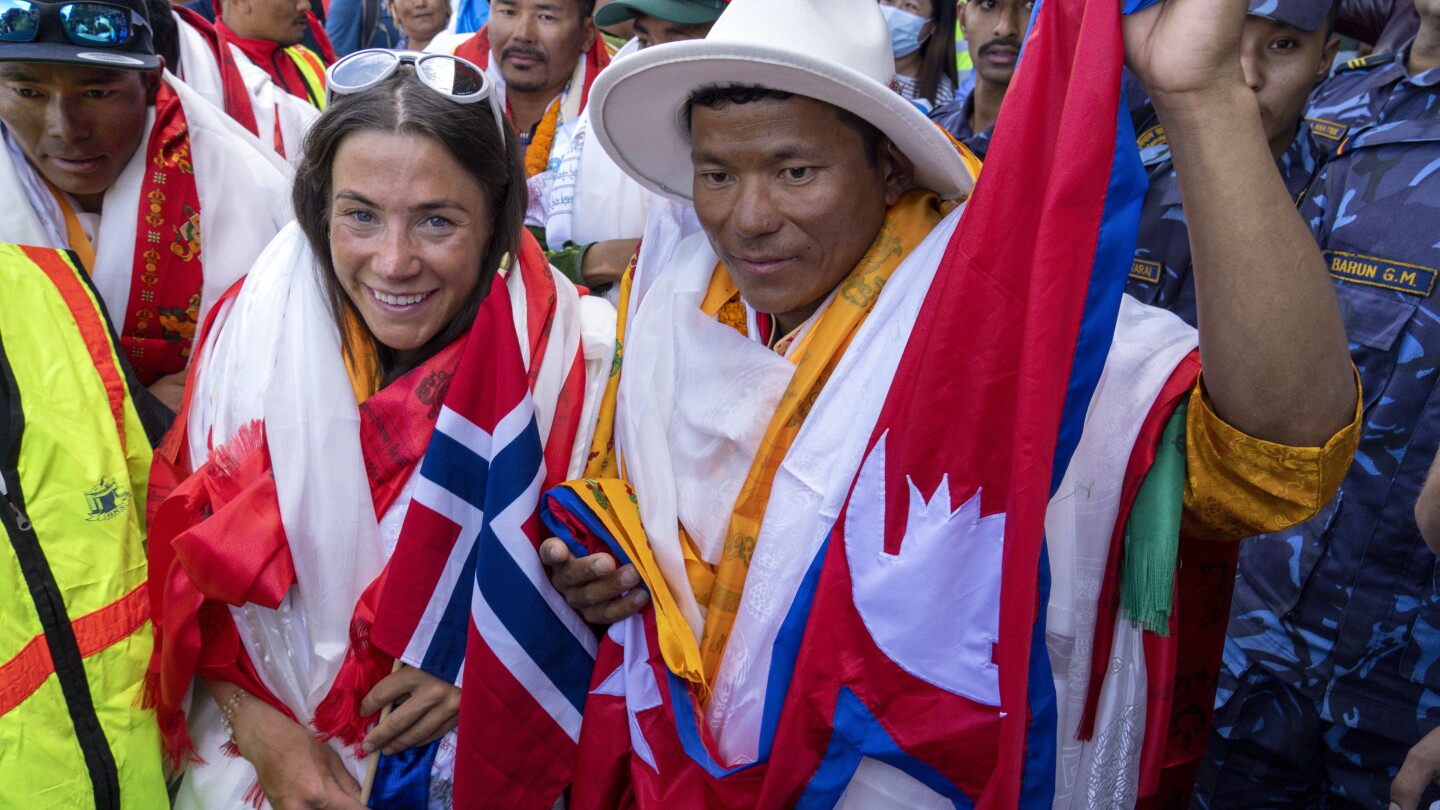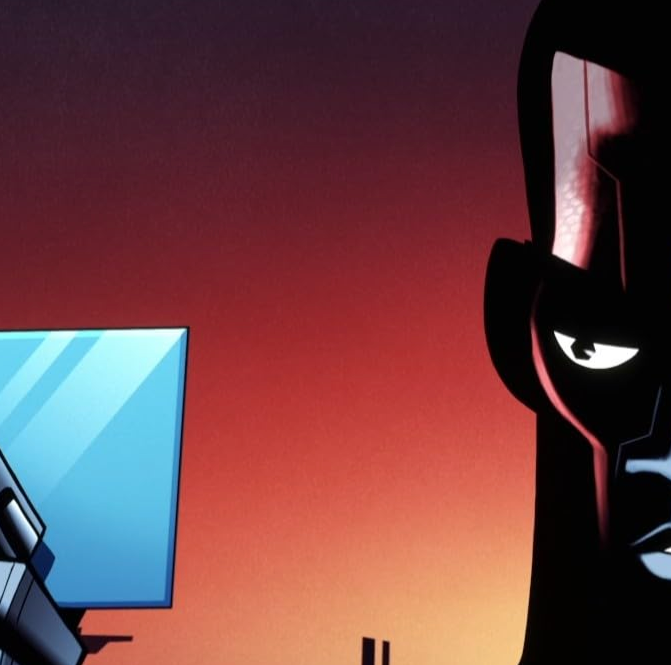Of course it would have been impossible. One in four climbers on K2 does not make it back. This is a non-story, as tragic as the loss of life may be. 25% mortality rate. You have better odds rolling a die for your life. Punintended.
(I’m not saying they shouldn’t have stopped to help; only that the likelihood of him surviving was near-zero.)
DEATHS ON K2
K2 is considered one of the most difficult climbs. For every four climbers attempting to summit K2, one climber dies. In comparison one in every 20 attempting to climb Mount Everest dies. As of June 2018, only 367 people have completed the ascent of K2 and 86 had died trying. As of 1995 113 people reached the summit of K2 and 48 died. In 1995 seven people were killed in brutal storm that raged for nine days. Thirty kilometers away a rock climber froze to death in a hanging tent. In August 2008, eleven climbers died over two days (See Below), In a 1953 attempt, Art Gilkey was killed, either in an avalanche or in a deliberate attempt to avoid burdening his companions.
If it somehow guaranteed your success it would be safer to play a round of russian roulette at the base camp before you begin your climb as that has only one in six chance of killing you. That’s how crazy your odds of success on the climb sound like.
Yet they all know the statistics and the risks, and go do it anyway. Are they mental, suicidal, or do they truly believe they are so awesome and everyone who died clearly was their inferior?Also I can understand taking that risk for yourself. Certainly it’s way outside my comfort zone, but I’m not going to tell someone else they can’t do something dangerous. But how can you go out and hire people to help you knowing there’s a 25% chance they’ll be giving their lives for you?
deleted by creator
@bernieecclestoned @dulce_3t_decorum_3st @JohnEdwa @grahamsz
wouldn’t it be cool if the took all the drive and energy they have for climbing a rock into making a world where people don’t have to hire out and risk their lives just to feed their family?
deleted by creator
But most mountaineers get by without having to hire people to carry their shit for them. Certainly people here in Colorado use guides from time to time, but i’ve never heard of anyone using a porter. Maybe i’m ignorant, but it seems like mountaineers only use porters in the himalayas because they are cheap and disposable.
Perhaps if you can’t summit a mountain without another human to carry your equipment then it should be ok to not summit that mountain.
deleted by creator
Unless you have no hobbies and no free time You can lead by example and show them.
Sure - and i’m sure I could find people who’d play a game of russian roulette for $1M but it’d be massively unethical to hire people to do that.
So there’s obviously some line - as a society we consider it ethical to hire forestry workers or deep sea fishermen even though they have a significantly higher risk of death that most other professions. I think a 25% death rate is just unethical in the extreme, even Everest is something like 1%.
Everest appears to be 5%. Where would you draw the line, and how would you justify it?
I have no idea, but hiring someone for a job that has a 1 in 20 chance of killing them seems fundamentally immoral - especially given the massive financial imbalance.
It’s certainly a good philosophical question though
Yeah, taking it to the extreme, the same logic applies to delivery guys on scooters and motorcycles. There’s definitely no good answer, except maybe that they accepted the risk
knowing there’s a 25% chance they’ll be giving their lives for you?
There isn’t. The person above is using a misleading stat, based on a misunderstanding of the stats.
Look at how many people are in the photos of the climbers all stepping over Mohammed Hassan here.
In common sense terms if this bizarre “25% die” stat were real, at least a dozen of them would have died that same day.
@grahamsz
@bernieecclestoned @dulce_3t_decorum_3st @JohnEdwaYes, that’s obviously taking the lifetime K2 deaths and dividing by the summit attempts - though actually I get 19% in that situation. However we really dont have enough data to form a good confidence interval there - it’s possible we’ve had a lucky few years or maybe we’ve got better at deciding when to make the summit attempts.
But it doesn’t really change my point. There’s some threshold where it seems fundamentally immoral to hire someone for a job that has a good chance of killing them. Mountain porter on k2 or everest is a higher risk job than “astronaut” without the same glory that comes with the space faring job title. Even if the chance of death is 1 in 200, I still think its immoral to take advantage of someone who’s so desperate for work that they’ll overlook it.
Definitely. I may not agree with your stats but I agree that it’s immoral to take advantage of people’s poverty - in this case he was motivated by his mother’s medical bills - to make them risk their lives, especially given it’s in order to help do a recreational activity that has no use.
Yeah I don’t understand the clamour. This sort of situation has happened many, many times. I remember reading about a guy dying in a cave near the Everest summit. Other climbers sat with him and shared water, comfort, but from that location, if he couldn’t move on his own, there was no way he was getting down. Also the numerous “landmark” bodies that the climbers pass right off the trail… there’s no safe way to remove them.
I think people assume that you can just carry someone out on a stretcher or arrange a helicopter—but people are literally operating on bleeding edge of oxygenation and helicopters can’t get up their for the same reasons… you aren’t going to be able to remove an incapacitated person who needs total physical support from others to move.
You could say, well it’s fucked up that people are paid to support these climbs, because they need the money, and there’s some validity to that, but in that case it’s not that different from something like deep sea welding or being in a combat unit of a military, etc.
One in four climbers on K2 does not make it back.
This is a very misleading statement and the stats just don’t back you up.
Look at the number of people on K2 in the pictures and video taken on the day in question. Yet only one person died.
You are confusing climbing with summiting and you are including numbers from the 1930s.
Thanks for pointing this out.
Details here if anyone is interested: https://en.m.wikipedia.org/wiki/List_of_deaths_on_eight-thousanders#K2
This is the stat the top-level comment is misinterpreting:
As of February 2021, 377 people have completed a summit of the mountain, while 91 have died trying, a staggering 4:1 ratio.
I have mixed feelings about this.
One the one hand, it sounds like they DID try to save the guy for hours. And this is an incredibly dangerous thing to attempt with a shockingly high number of people dying an attempt every year. I also think everyone that attempts one of these climbs knows exactly what they are doing. The porter that died might not have been well paid by Norwegian standards, but I have little doubt that he was paid quite well for Pakistan…
… but on the other hand, this is completely unnecessary. These people are dying - whether they are a hired sherpa or a Western climber - for totally no good reason. They aren’t really exploring new lands anymore. They aren’t discovering new sources of X mineral or sailing unknown seas. Everything about this is just rich-person’s adrenaline vacation, and not something particularly important.
deleted by creator
I can’t remember if it was a documentary or a book where there was a jam getting to the summit of everest because basically the people in front of the line were struggling to keep walking up. The expert mountaineer said, paraphrasing : Out of shape, under prepared, whatever the cause, every minute not moving at pace means someone behind them is more likely to die. He explained they were a moving road block and gave them a 50/50 chance to make it down, IF they had paid for help. He decided 30 minutes later to give up his ascent and telling guides and others on the way down that there people struggling and to turn back. At that elevation, walking is a struggle even with oxygen. Helping someone out whether by giving them your oxygen or helping them down could mean both die. I personally wouldn’t do it, but I hope whatever people go up the mountain know exactly that, if they can’t carry their own weight, they’ll be left to die.
but on the other hand, this is completely unnecessary.
Everyone should have the freedom to be the architect of their own fortune or misfortune.
I don’t pretend to know why they do it, but as long as everyone is doing it willingly and know the risk, I don’t have a problem with it.
And that freedom is only possible if they would otherwise be financially stable and have good options for work.
We don’t know why this porter did what he did. Was because he loved pushing rich foreigners up a mountain? Or was it because he needed the money and had the skill?
They why do politicians get to decide this for billions.
deleted by creator
It’s incredibly callous to decide to just continue on their world record attempt instead of stopping the climb and trying properly to save the guy.
This longer article has the footage and more in-depth explanations.
I can’t help thinking it’s true, if this had been a westerner instead of a sherpa they would not have treated him like this.
I’m not sure what more to expect from these people. They arent breaking new ground, they arent contributing to science and exploration, they are just trying to get their “world record” for their own selfish reasons. They absolutely would step over a westerner if it it’s corpse stood in their way.They use the bodies as milestones…
I’m not gonna stop them trying, but I’m certainly not impressed with their “achievement”. I do feel bad for the sherpa, who is just trying to feed his family. Hopefully more of them realise that their lives are not worth the risk.
Well there was a similar incident a few years ago on Mt Everest involving a western climber who also died: https://en.m.wikipedia.org/wiki/David_Sharp_(mountaineer)
Good point. Seems like the Turkish team tried to save him and everyone else ignored him…
Also, arguing against my point, I noticed some other teams have spoken out eg
Said Lukas Furtenbach, owner of Furtenbach Adventures: “We would have stopped our summit push and helped, no matter what it takes. Even if it means we have to give up our oxygen supplies and even if it means no summit for all our clients. This is a fundamental part of the pre-summit push briefing I do with all clients. I always prepare them so that if we come across a situation like that, we help. Period.” Source.
There have been several incidents on Everest in recent years which have highlighted Sherpas feeling bad about how they are treated, though.
I don’t think he was a sherpa, but your point stands.
You’re right, he was ethnically Pakistani and as a porter was lower in the heirarchy than Sherpas by the looks of it.
Fuck that industry and everyone that fuels it.
There’s nothing up there worth dying for, or worth letting someone else die.
This is the best summary I could come up with:
The circumstances of Mohammad Hassan’s July 27 death on K2, the world’s second-highest peak, sparked ongoing controversy, with two climbers arguing that he could have been saved if all those on the mountain that day had aborted their climb and focused on getting him down safely.
The fallout from Hassan’s death overshadowed a record established by Norwegian climber Kristin Harila and her Sherpa guide, Tenjin.
The uproar had been sparked by drone footage showing dozens of climbers pushing past a gravely injured Hassan toward the summit.
The committee’s mandate noted that it’s crucial to determine the facts after “distressing reports circulating on various social media platforms.”
Investigators will try to determine, among other things, whether more could have been done to save Hassan, said Sajid Hussain, deputy director of the Sports and Tourism department of Gilgit-Baltistan.
Steindl and German climber Philip Flaemig, who shot the drone footage, had abandoned their K2 climb earlier that day because of bad weather.
I’m a bot and I’m open source!
“Some peasant worker died on my trip so I can have this tiny ego boost to say I climbed Mt Everest”
Removed by mod
K2 is a real mountain. Not an Everest shuffle.
I consume Norwegian news, so my sources is wildly biased, but for what it’s worth:
The pakistani climber was extremely undergeared, not wearing even what has been called a “bare minimum” jacket and insufficient oxygen supplies. Even though Norwegian sources don’t deny that Kristin should have a trial for her inactions, they are leaning heavily towards making a case against the organization which was in charge of gearing up and preparing the pakistani.
I am torn. And as I stated, my sources is extremely biased, as Norwegians have a huge thing for lifting up our own people, but this case is not a great look.
Mountaineer not climber.









